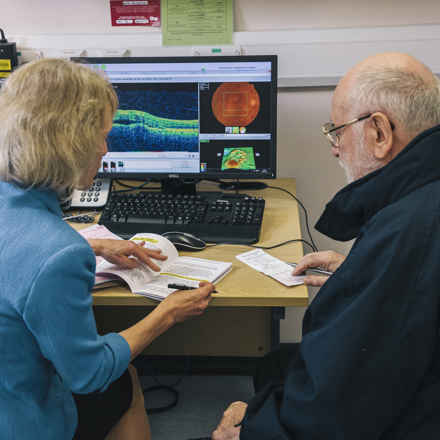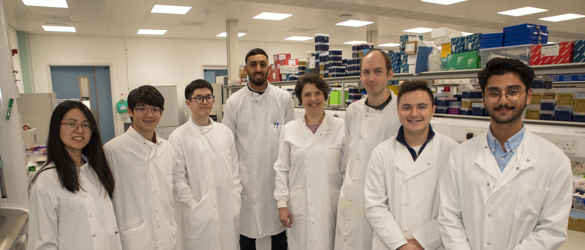Investigating how eye doctors discuss AMD with patients

Dr Tamsin Callaghan, City, University of London - £78,622
October 2019 - December 2023
Eye doctors are encouraged to mention the lifestyle changes that patients can make to slow the progression of age-related macular degeneration (AMD). However, this may not always be communicated or followed. This project aimed to improve communication to patients on lifestyle changes.
What is the problem?
When people with dry AMD are diagnosed, too often they are simply told there is no treatment and there is nothing that can be done. This can be disheartening to patients and ignores many possible adaptations that may help slow the progression of disease. More needs to be done to ensure patients are informed about the changes they can make that could help.
What did the project achieve?
Using themes from patient and eye care professional focus groups and existing literature, three surveys were created. The first survey focused on patients' experiences and the lifestyle advice they received during their most recent appointment. A second survey was sent to participants three months later to follow up on any changes they had made based on the advice provided. The third survey was distributed to eye care professionals to investigate the barriers they perceive to effectively providing lifestyle advice. The data collected was analysed to assess how well our healthcare system supports people with AMD from the moment of diagnosis.
What's next?
This research lays the groundwork for developments that will improve care for people with AMD. While further research may be necessary to refine the details, both the medium—whether face-to-face or in leaflets—and the message itself requires improvement. The finding that advice is more likely to be followed when supported by data strongly suggests the format in which advice should be presented.
See our other projects
Since 1987 the Macular Society has invested around £10 million in over 100 research projects.
Explore more research
Beating macular disease through funding medical research and improving the lives of those living with macular disease.
Get the latest research news from the Macular Society
To hear about life-changing research and treatments, subscribe to our monthly enewsletter today. Together we can Beat Macular Disease.
Sign up to our free email newsletter



